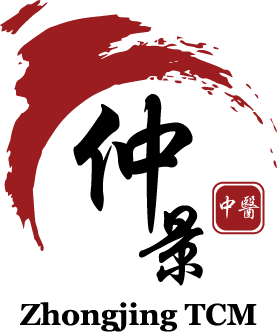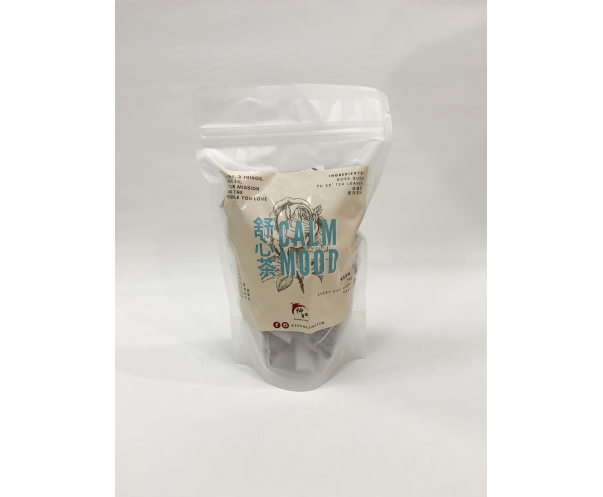Author: Physician Vivian Wen | December 2021 | Zhongjing TCM
Everyone wishes to have a healthy complexion, but according to the National Skin Centre, 1 in 10 in Singapore suffer from eczema at some point in life. According to another National Health Group survey, the problem is more prevalent among school-age children, with 1 in 5 suffering from eczema.
The Singapore National Skin Centre survey also found that Singapore's hot weather, dusty environment and our incorrect exercise habits are the main reasons for the increased incidence of eczema among Singaporeans.
What is the medical (TCM/Western) understanding of eczema?
Western Medicine
Eczema is a chronic recurrent inflammatory skin disease characterized by dry, itchy skin caused by a variety of internal and external factors. During an episode, the skin surface is prone to papules or blisters, vesicles, and exudates. The types of eczema can be subdivided into atopic dermatitis, contact dermatitis, seborrheic dermatitis, dyshidrotic eczema, nummular eczema, lichen simplex chronicus, and asteatotic eczema.
The etiology of eczema is complex and often results from the interaction of internal and external factors, which varies from person to person. Internal factors include chronic digestive diseases, mental stress, poor sleep, overexertion, emotional changes, endocrine disorders, infections, metabolic disorders, etc. External stimuli such as sunlight, cold, dryness, heat, hot water and various animal hides, plants, cosmetics, soaps, artificial fibers, etc. can also trigger an episode. Thus, the best way to prevent eczema is to identify the causes of eczema and avoid these triggering factors.
The 3 stages of eczema are acute, subacute and chronic phases. Each eczema stage has its own distinct symptoms that demonstrate the progression of the condition. In the acute phase, the rash is diverse; it is flushed, moist and vesicular, and itchy. In the subacute phase, papules, crusts, and scales are predominant; a few blisters and mild vesicles could present. In the chronic phase, there are less vesicles, the skin is thickened and leathery-looking with accentuated skin lines.
Modern medical treatment of eczema includes oral antihistamines and topical hormonal ointments, which have certain efficacy with limitations, and long-term use of hormonal drugs can cause local skin atrophy and hyperpigmentation.
TCM Perspective
In TCM, eczema is classified under “wind”, “dermatomycosis” and “sores”.
According to the Diagnostic and therapeutic effect evaluation criteria of diseases and syndromes in Traditonal Chinese medicine issued by the State Administration of Traditional Chinese Medicine in 1994, eczema is a common pruritic skin disease with a variety of rashes that are not localized and are often symmetrically distributed. It is more common on the head, face, distal extremities, scrotum, etc. but can be distributed on the whole body. Eczema is classified according to different sites of onset.
The pathology of eczema can be summarised as an innate weak constitution that is intruded by external wind, dampness or heat pathogens. This can be caused by:1. Poor diet habits that lead to the dysfunction of spleen transportation, causing a build-up of phlegm dampness that forms a complex with heat pathogens and present on the skin. 2.Weak constitution with dampness encumbering the spleen can lead to malnourishment of the skin. 3. Heat-dampness pathogen encumbering the spleen for extended periods of time, exhausting Yin-Blood, resulting in blood deficiency producing wind-dryness.
Do I have dampness in my body? (Self-check)
This self-check is a very important indicator for diagnosis.

- Poor appetite, low food intake and bloatedness. In more serious cases, could present with nausea, fatigue, even after napping, dizziness and unclear mind persists with little motivation to do anything for the whole day.
- Thick and greasy tongue coating is an indicator of dampness in the body.
- Soft and sticky stools, or incomplete bowel emptying
Acupuncture points/massage
For self-care to reduce dampness and invigorate the spleen, you can massage the following acupoints for 2-3 minutes daily.
|
| Zu San Li (ST-36) On the anterolateral side of the lower leg, 3 inches below Du Bu acupoint, one middle finger across from the front edge of the tibia. |
|
| San Yin Jiao (SP-6) Place four fingers above the inner ankle, behind the shin bone.
|
|
| Qu Chi (LI-11) With the elbow flexed, the point is on the lateral end of the transverse cubital crease, at midpoint between LU 5 and the lateral epicondyle of the humerus.
|
|
| Yin Ling Quan (SP-9) In the inner thigh, on the lower border of the medial condyle of the tibia in the depression posterior and inferior to the medial condyle of the tibia.
|
Soup/diet therapy
Wintermelon Barley Tufuling Soup

Pseudostellaria Root Cardamom Carp Soup

Rehmannia & Siler Root Stewed Old Duck

Dampness Eliminating Tea

You can also drink some red bean barley soup, which works to clear heat and eliminate dampness. However, please take note that as barley is cold in nature, avoid during pregnancy, menstrual period or if you have cold extremities.
Most importantly, daily diet should be light, maintain a routine lifestyle. Avoid contact with allergens. Treating eczema starts with maintaining a healthy lifestyle.









